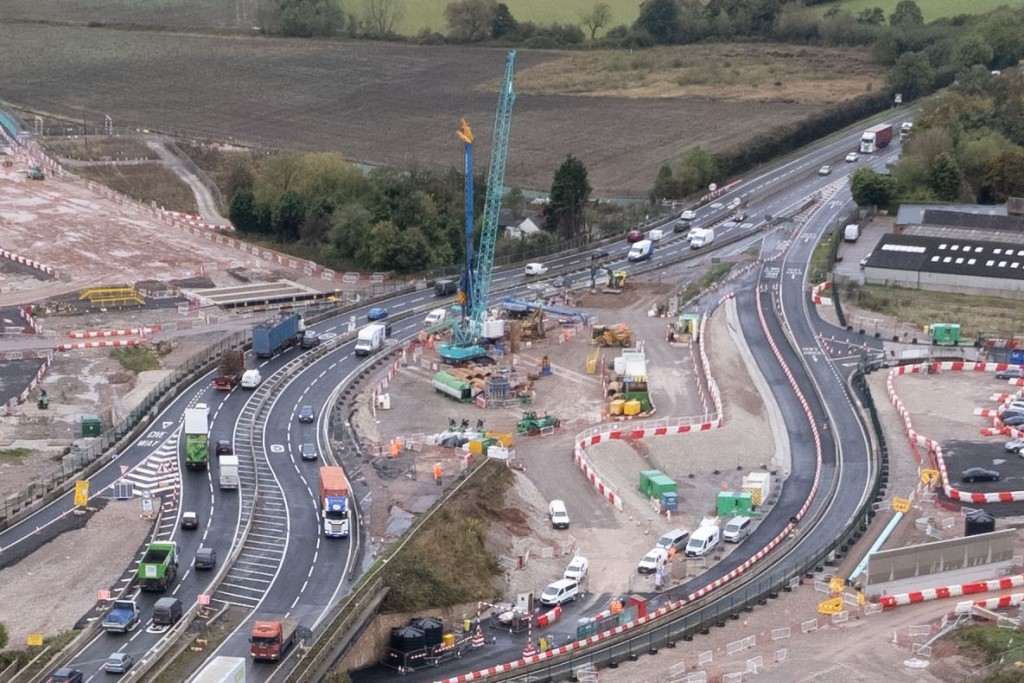Engineers has started work directly underneath the A38 carriageway at Streethay in Staffordshire to build the foundations of the Rykneld Street bridge.
A total of 88 piles will be sunk to depths between 20 and 27 metres to support the weight of the structure.
Ahead of works, a temporary 320-metre stretch of the A38 has been put in. Once piling has been completed and the bridge deck is installed in late 2025, the realigned section of the road will be moved back to its original position where piling is now taking place – allowing space for the high-speed railway to pass underneath.
At 90.5 metres long, HS2’s Rykneld Street bridge is the last of three retaining structures to be built at Streethay and contained within a 455-metre-long cutting through the ground. The trio of bridges, which also includes the A38 Southbound Slip Overbridge and the Streethay Overbridge, will enable the HS2 line to pass under the A38, its slip lanes and the existing South Staffordshire freight railway.
Around 750,000 cubic metres of earth will be excavated during the process of building the three bridges and reused to form embankments along the HS2 route locally.
The piling operation and ongoing engineering work is being carried out by Balfour Beatty Vinci together with SB3 – a joint venture made up of Vinci subsidiary Bachy Soletanche and Balfour Beatty Ground Engineering. The new bridge is designed by a design joint venture of Mott MacDonald and Systra working for Balfour Beatty Vinci.

Balfour Beatty Vinci project manager Zachary Walker said: “We’re delivering a series of complex structures that will allow HS2 to pass underneath the A38, its slip lanes and the South Staffordshire freight railway near Lichfield.
“This exciting engineering project is about to move onto the next phase, as we begin the foundation work on the third and final bridge we’re building along this 455-metre retained cutting in Streethay.”
HS2 Ltd senior project manager David Perry said: “Carrying out a complex engineering operation of this scale in close proximity to a live carriageway comes with a unique set of challenges, requiring a multi-stage and collaborative approach from everyone involved.”

